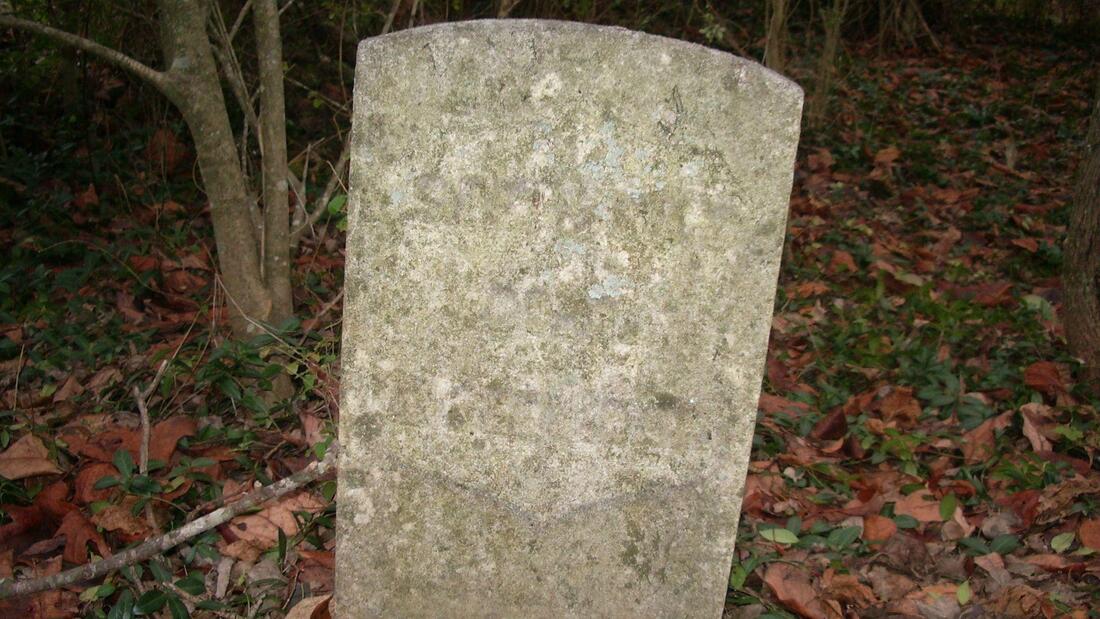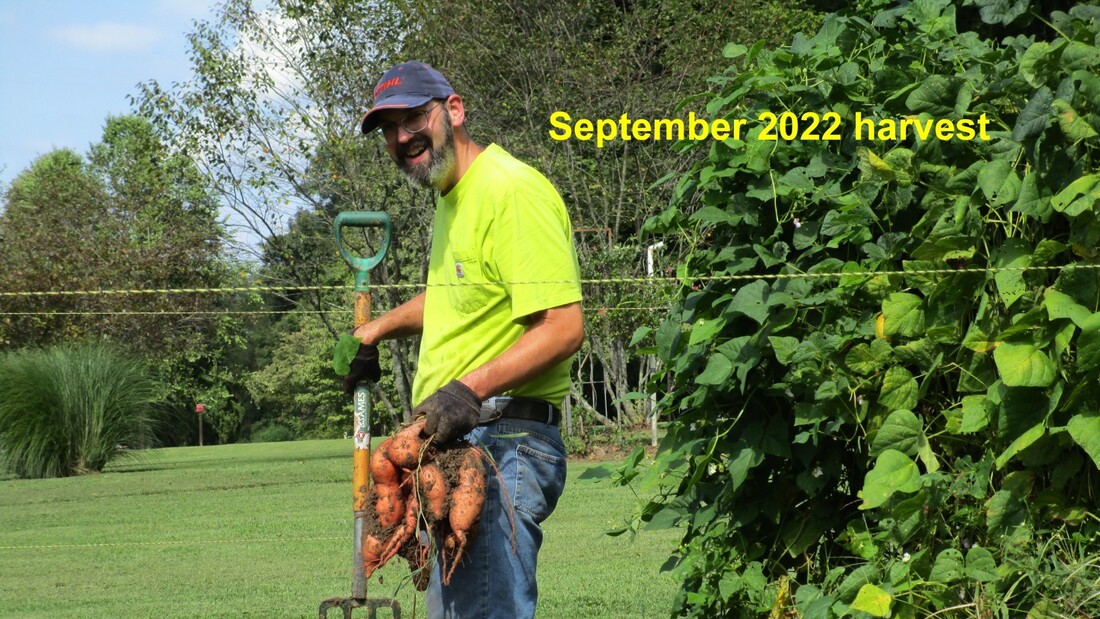|
At a recent family get-together the question was brought up as to why one set of my 1st great grandparents (who died between 1923 and 1942) were buried with only a rock for a gravestone. My uncle offered that maybe they were too poor to afford a professional gravestone with their name on it. I doubt that. And the rock/fieldstone can no longer be located. Thankfully I at least have a couple black and white photos of them, and a picture of their 1894 marriage license I took during research at the clerk’s office in my local courthouse. Three years ago, the man who maintains the plat map of that cemetery told me he only has records of *marked* graves. Unless they mark plots on a map as allotted to a family, what is to prevent them from being inadvertently dug up when some mortician a decade from now sees a couple open spaces and decides to bury there? Let us step back for a moment. If we go back far enough, common folk had no gravestones. They would be buried at the foot of an old tree or a rock placed in lieu of a headstone. Cut marble stones were expensive, generally unavailable to poor folk or people living great distances from cities. Roughly speaking, after the WBTS engraved headstones became more commonly available and affordable to plain folk, and especially so in the 20th century. Consider John Rowan (1773-1843) of Kentucky -judge, politician, horse breeder, duelist, and builder of Federal Hill plantation. It is said that Judge Rowan specified that he should have no headstone, as his parents had none and he felt no greater than them. Eventually his children formally marked the judge’s grave, which can be viewed at My Old Kentucky Home State Park between the visitors center and his circa 1818 mansion. I accept that common folk, and even some planters, often did not have gravestones 200 years ago. That is just reality. But 80 years ago? Really? And yet, my aforementioned 1st great grandparents Robert Young and Minnie Jane (Elledge) lay unmarked in a row near the woods at a large Methodist cemetery. One relative remembers being shown their graves maybe 40 years ago, fieldstones still visible then. Two of their four children lie nearby, with spouses, all in marked graves. The immediate area has several spaces for potential graves. Minnie Jane’s parents lay in the same graveyard, up the hill in marked graves. Robert’s parents lie in a cemetery one county east, in marked graves. Why did the five adult children of my 1st great grandparents not mark their parent’s grave with a headstone bearing their names? I cannot answer that for sure. None of the five were wealthy, but none were poor. All the men were literate and employed. The men were all land owners. Even if money was tight in 1942, why not mark them a couple decades later? One the back row of a little country graveyard near me is a stone for six infants of the same family, these infants being older second cousins to my mother, some stillborn and unnamed, with a few rocks visible nearby. But the ones who lived to adulthood before being laid to rest there all have actual headstones. A poor couple in the Depression era who gave birth to 18 children over a 22 year period (many sets of twins!) could apparently not afford headstones. They were poor. My ancestors were not. Plain folk, yes. Dirt poor, no. Why no headstone? My grandfather, son of the unmarked Robert and Minnie, lies next to my grandmother in marked graves. So do all four of his siblings, sort-of. One brother and his wife have nothing but the little metal plaque on a stick that funeral homes use to mark graves before a headstone is set. One is very weathered, having stood there for over 30 years. Their only daughter did not bother to mark her parent’s grave with a headstone. And guess what. When the daughter and her husband died, their daughters did not mark their grave either, save for the funeral home plaque stick in the ground. Then when one of the two daughters prematurely died in 2021, her sister did not even bother to mark her grave for over a year. Finally, a small metal plaque on wire showed up, not a funeral home style one. She is employed, owned a house, inherited her sister’s house, but just could not drop $300 for a basic mail order flat headstone for her sister’s grave. Can we guess how her grave will one day be marked? A generation who do not care about the memory of their ancestors will be requited with descendants who likewise do not care about their memory. I came across an article last year titled Family tree stumped: Most Americans can’t name all 4 of their grandparents! by one Chris Melore. It cited survey data that only 47% of people could name all four of the grandparents, and another survey indicating that only 4% (yes, four percent) of people could name all eight of the great-grandparents! How can this be? It is not hard to destroy a race and their culture when that people have lost sight of who they are. The Southern question when meeting a stranger of “where do you bury” does not work well if one does not even know who their grandparents are. I have read, from an online source, that “Tradition is not the worship of ashes but the preservation of fire”. I think this to be true. At some point my family, and that of most Americans, ceased to preserve the fire. People started living for themselves, in the moment, structuring their lives around the acquisition of mammon. Extended family drifted apart. Sunday visits ended. Family moved away, even hundreds of miles away to different states. First cousins barely know each other, and 2nd cousins never met. And thus goes out the fire. Do not let the fire go out in your family. If it already has, do what you can to rekindle it. But do not be surprised if most of your cousins do not care. If you have any ancestors with unmarked graves that can be located, mark them even if you must take up donations from interested kin. Our people must endure!
7 Comments
As a young man I worked in a restaurant, eventually as a manager. It was the best paying and most personally degrading job I have ever held. But I had some enlightening experiences in those eight years… About fifteen years ago I was talking to another man who worked at the same restaurant chain. He was the younger brother of the store owner at my location. He told me he did not like to eat salad because it “tasted like dirt”. What? I knew nothing of the Twelve Southerners at the time, and my folks no longer grew a garden, but as a country boy I was naturally perplexed by his statement. I had never thought of salad, or vegetables, having an earthy flavor. Perhaps they do at times. But that is because of what they are. And occasionally a piece of sausage tastes like the barnyard, perhaps from sloppy butchering technique. I never ate a mud pie as a child so I cannot positively comment on what dirt tastes like. I also recall the owner’s son, about my age, once telling me that he hated the term cowboy so much that he was surprised that he still liked the Dallas Cowboys football team, and also mocking a “no farms no food” bumper sticker he saw. What was wrong with those fellows? Why would a man hate the soil, where his food grew, hate the very source of his physical sustenance, and mock those who fed him by their labor? How disconnected from nature and reality is that? How urbanite. How Yankee. And Yankees they were, in sentiment and also in ancestry. They came carpetbagging down from Indianapolis to sell food to rural folk. The Bible tells us that God placed man in a garden to tend it. Jesus Christ spoke in agrarian parables. From ancient Greece to Medieval villages to early Virginia to Russian peasants in 1917 -man lived from the soil. (And modern ones still do, in an indirect and abusive way). To work the land was the normative lifestyle for the majority of mankind until about 1750 or so when the Industrial Revolution came along. Dixie was the last outpost in “America” of not just farming but a true agrarian wordlview. And the agrarian worldview truly is just that, a lifestyle and a worldview, not just a way to make an income, as the Southern Agrarians contended as recently as 1930 with I’ll Take My Stand. Why are farmers mocked by the elite? Why is ditch digging a pejorative, cast as the lowest of occupations, only for the stupid or lazy? Because modern man is in rebellion to God, and hates to work the soil from whence he came. To garden, even a small one in a suburban backyard, gives one a connection to their creator. There is still a remnant of agrarianism in Dixie! Yes, they garden in Vermont, but Mother Earth News is not quite I’ll Take My Stand. And why are mausoleums becoming common in urban areas? You see, man used to understand that each of us must one day “...return unto the ground; for out of it wast thou taken: for dust thou art, and unto dust shalt thou return”. Soil reminds him of what he is, of his basic needs (that are *for now* artificially supplied by the system), and of his ultimate mortality and resting place. He wishes to escape the soil, even in death. Anyway, I like the soil. I think I will go and start harvesting my raised beds of sweet potatoes after I send this essay in to Reckonin’. |
AuthorJoe Putnam is a life long resident of Kentuckiana, with ancestors having lived with a 75 mile radius of Louisville since 1780. He has blogged at God, Kin, and Soil and has indie published a few small books available on Amazon. Archives
November 2023
Categories |
Proudly powered by Weebly



 RSS Feed
RSS Feed